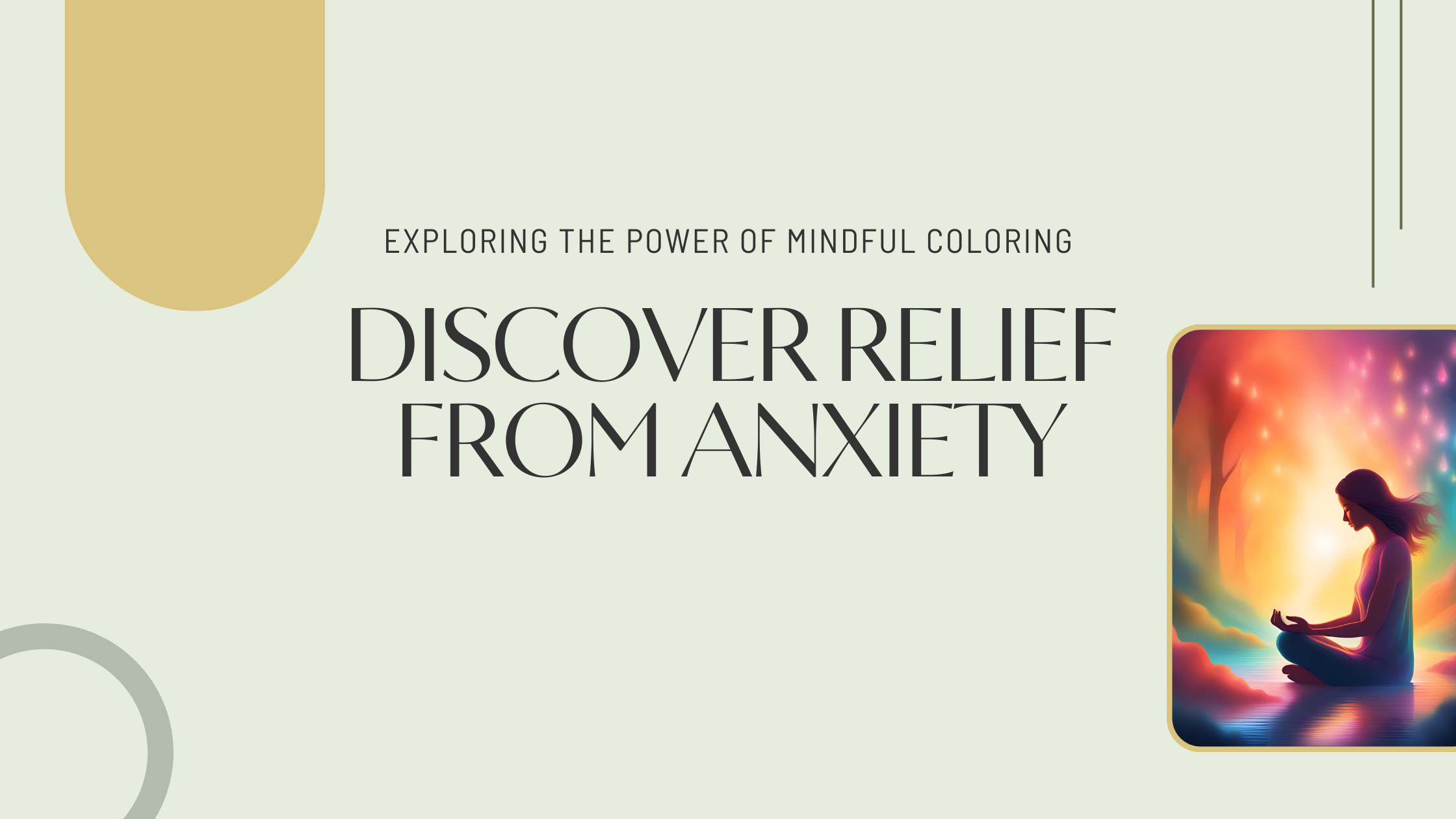
Understanding Anxiety and its Impact on Mental Well-being
What is anxiety and its prevalence in today's world?
Anxiety is a common mental health condition characterized by persistent feelings of worry, fear, and unease. It affects millions of individuals worldwide, with a prevalence that continues to rise in today's fast-paced and high-pressure society. The demands of modern life, such as work pressures, financial struggles, and social expectations, contribute to the increasing prevalence of anxiety.
Recognizing the importance of addressing anxiety for overall well-being
Addressing anxiety is crucial for overall well-being as it can have a profound impact on various aspects of a person's life. Chronic anxiety can lead to physical symptoms like headaches, insomnia, and digestive issues. It affects relationships, work productivity, and the ability to enjoy life. By acknowledging the importance of managing anxiety, individuals can take a proactive approach to protect their mental well-being.
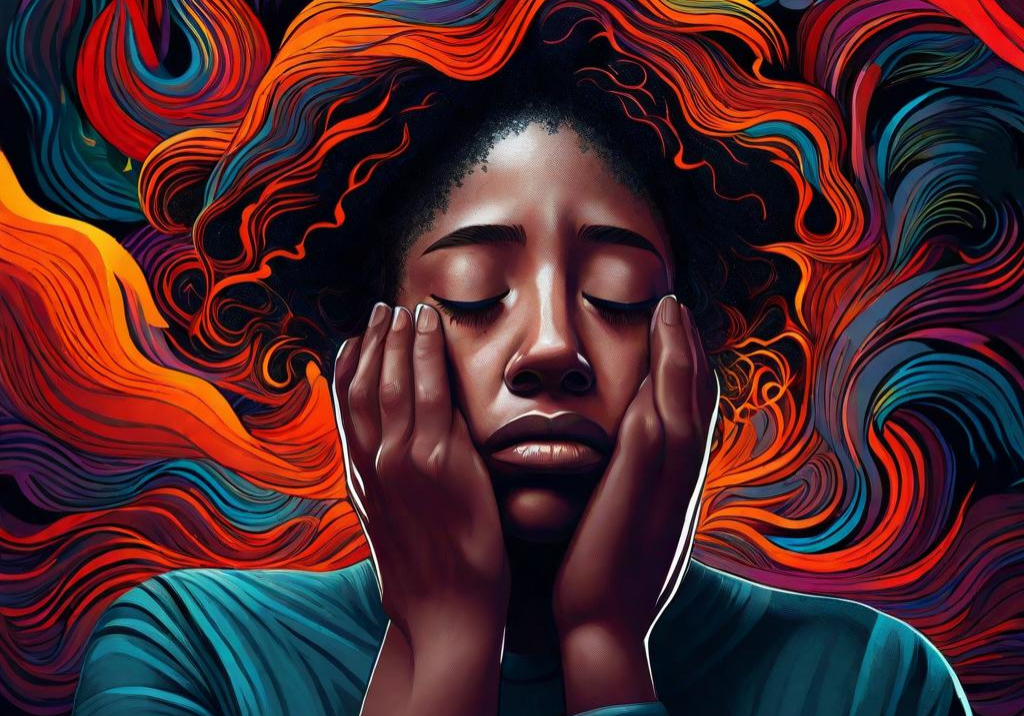
The Art of Mindful Coloring: A Therapeutic Approach to Soothe Anxiety
Exploring the principles of mindfulness in stress reduction
Mindfulness is the practice of being fully present in the current moment, without judgment or attachment to thoughts and emotions. It has gained recognition as an effective tool for stress reduction and anxiety management. Mindful coloring combines the principles of mindfulness with the act of coloring, creating a unique therapeutic experience. By focusing on the colors, textures, and movements involved in coloring, individuals can cultivate a sense of presence and calm.
- Cultivating presence and focus through mindful coloring
Addressing anxiety is crucial for overall well-being as it can have a profound impact on various aspects of a person's life. Chronic anxiety can lead to physical symptoms like headaches, insomnia, and digestive issues. It affects relationships, work productivity, and the ability to enjoy life. By acknowledging the importance of managing anxiety, individuals can take a proactive approach to protect their mental well-being.
- Enhancing self-awareness and self-regulation
Addressing anxiety is crucial for overall well-being as it can have a profound impact on various aspects of a person's life. Chronic anxiety can lead to physical symptoms like headaches, insomnia, and digestive issues. It affects relationships, work productivity, and the ability to enjoy life. By acknowledging the importance of managing anxiety, individuals can take a proactive approach to protect their mental well-being.
Scientific evidence supporting the role of mindful coloring in anxiety relief
The therapeutic benefits of mindful coloring are supported by scientific research. Studies have shown that coloring activates the brain's reward system, releasing feel-good neurotransmitters such as dopamine and endorphins. This stimulation of the reward system helps counteract the stress response, reducing anxiety levels and promoting a sense of well-being.
- The relationship between coloring and relaxation response
Coloring has been found to induce a state of relaxation similar to other mindfulness-based practices. It engages the brain's relaxation response, which is responsible for reducing stress, lowering blood pressure, and slowing down the heart rate. This physiological response to coloring contributes to the overall calming effect on anxiety.
- Stimulating the brain's reward system through creative expression
Engaging in creative activities like coloring triggers the brain's reward system by activating the prefrontal cortex, amygdala, and other regions associated with pleasure and creativity. This activation leads to a sense of accomplishment, satisfaction, and increased self-esteem, all of which can help alleviate anxiety.
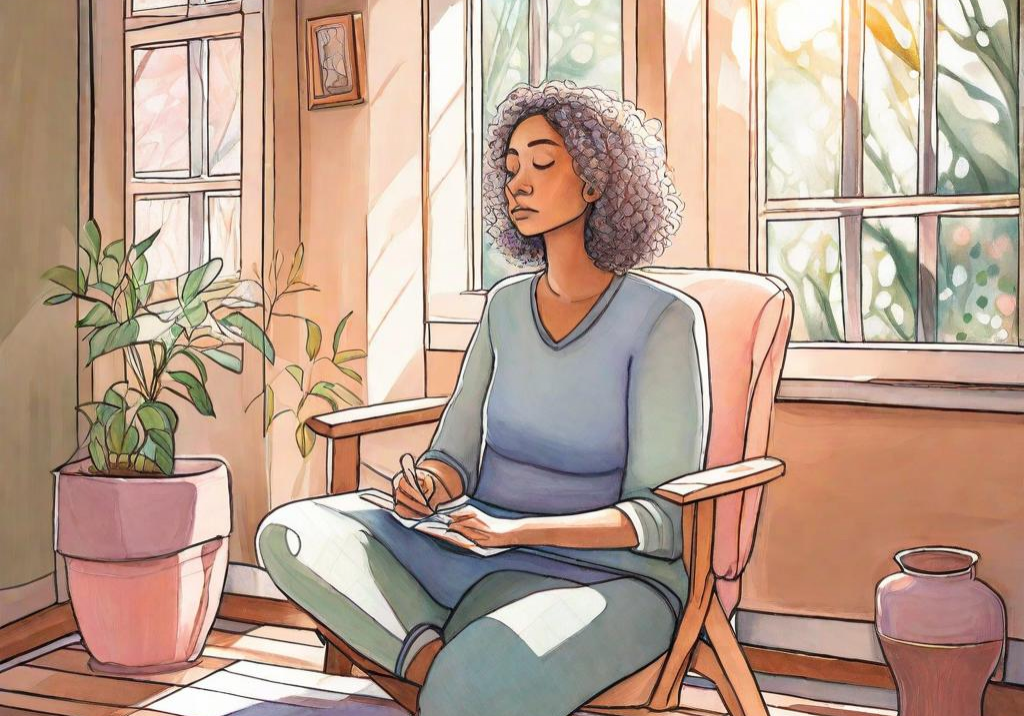
Selecting the right coloring materials and setting up a conducive environment
To maximize the therapeutic benefits of mindful coloring, it is essential to select the right coloring materials and create a conducive environment. Using high-quality colored pencils, markers, or crayons enhances the coloring experience and allows for greater precision and control. Additionally, setting up a peaceful and calming space dedicated to coloring helps create a sense of serenity and promotes relaxation.
Techniques and Strategies to Maximize the Benefits of Mindful Coloring
Incorporating guided meditation and breathing exercises
Combining mindful coloring with guided meditation and breathing exercises amplifies the anxiety-relieving effects. By incorporating breath awareness during coloring, individuals can synchronize their breathing with the color strokes, deepening relaxation. Guided meditations specifically tailored for coloring sessions can provide additional guidance and support, leading to a deeper sense of calm and stress relief.
- Using breath awareness to enhance relaxation during coloring
Breath awareness involves bringing attention to the natural rhythm of one's breath. By focusing on the inhales and exhales while coloring, individuals can anchor themselves in the present moment and create a meditative state. This technique enhances relaxation and helps alleviate anxiety by reducing tension in the body.
- Combining coloring with guided meditation for deeper stress relief
Combining coloring with guided meditation involves listening to pre-recorded or live instructions that guide individuals through a relaxation process while coloring. These guided sessions provide prompts for visualization, body relaxation, and positive affirmations. This integration of mindfulness practices offers a holistic approach to anxiety reduction and serves as a powerful stress management tool.
Exploring creative variations of mindful coloring for different preferences
Combining mindful coloring with guided meditation and breathing exercises amplifies the anxiety-relieving effects. By incorporating breath awareness during coloring, individuals can synchronize their breathing with the color strokes, deepening relaxation. Guided meditations specifically tailored for coloring sessions can provide additional guidance and support, leading to a deeper sense of calm and stress relief.
- Freeform coloring: Embracing spontaneity and self-expression
Breath awareness involves bringing attention to the natural rhythm of one's breath. By focusing on the inhales and exhales while coloring, individuals can anchor themselves in the present moment and create a meditative state. This technique enhances relaxation and helps alleviate anxiety by reducing tension in the body.
- Patterned coloring: Finding solace in repetition and structure
Patterned coloring involves coloring intricate designs with repetitive patterns. This technique provides a sense of structure and order, which can be comforting for individuals seeking stability and consistency. The repetitive nature of patterned coloring induces a meditative state, promoting relaxation and soothing anxious thoughts.
- Mandala coloring: Tapping into the therapeutic benefits of symmetry and symbolism
Patterned coloring involves coloring intricate designs with repetitive patterns. This technique provides a sense of structure and order, which can be comforting for individuals seeking stability and consistency. The repetitive nature of patterned coloring induces a meditative state, promoting relaxation and soothing anxious thoughts.
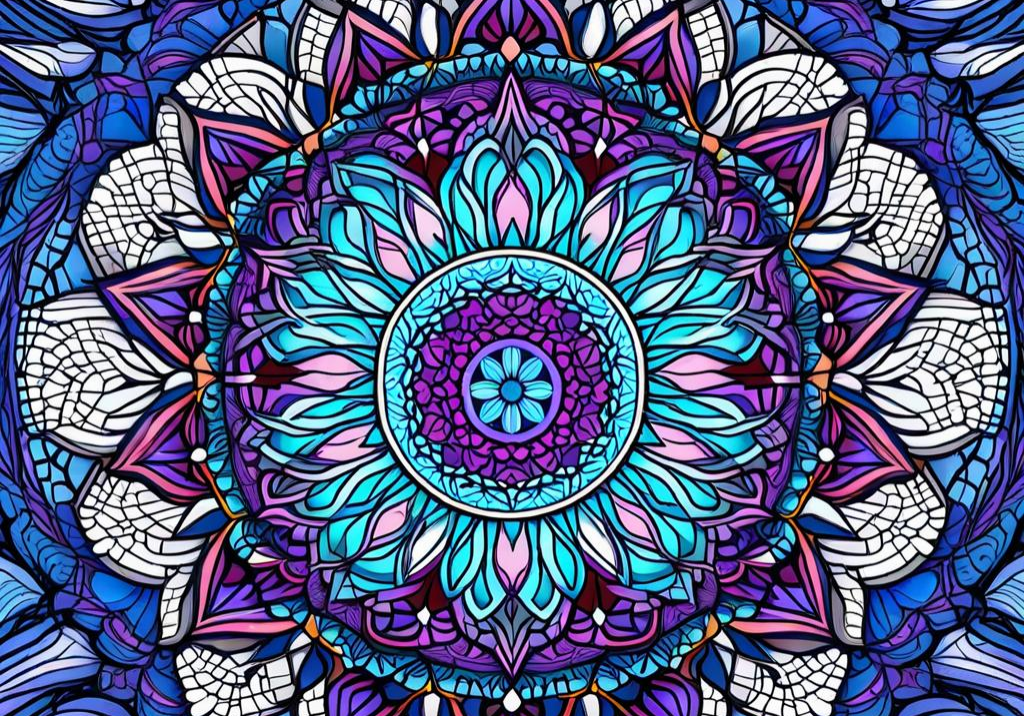
Personal Accounts and Success Stories: How Mindful Coloring Transformed Lives
Real-life experiences of individuals finding relief from anxiety through mindful coloring
Combining mindful coloring with guided meditation and breathing exercises amplifies the anxiety-relieving effects. By incorporating breath awareness during coloring, individuals can synchronize their breathing with the color strokes, deepening relaxation. Guided meditations specifically tailored for coloring sessions can provide additional guidance and support, leading to a deeper sense of calm and stress relief.
Resonating with different age groups and diverse populations
Breath awareness involves bringing attention to the natural rhythm of one's breath. By focusing on the inhales and exhales while coloring, individuals can anchor themselves in the present moment and create a meditative state. This technique enhances relaxation and helps alleviate anxiety by reducing tension in the body.
- Mindful coloring for children and adolescents
Combining coloring with guided meditation involves listening to pre-recorded or live instructions that guide individuals through a relaxation process while coloring. These guided sessions provide prompts for visualization, body relaxation, and positive affirmations. This integration of mindfulness practices offers a holistic approach to anxiety reduction and serves as a powerful stress management tool.
- Mindful coloring as a tool for elderly individuals
Combining coloring with guided meditation involves listening to pre-recorded or live instructions that guide individuals through a relaxation process while coloring. These guided sessions provide prompts for visualization, body relaxation, and positive affirmations. This integration of mindfulness practices offers a holistic approach to anxiety reduction and serves as a powerful stress management tool.
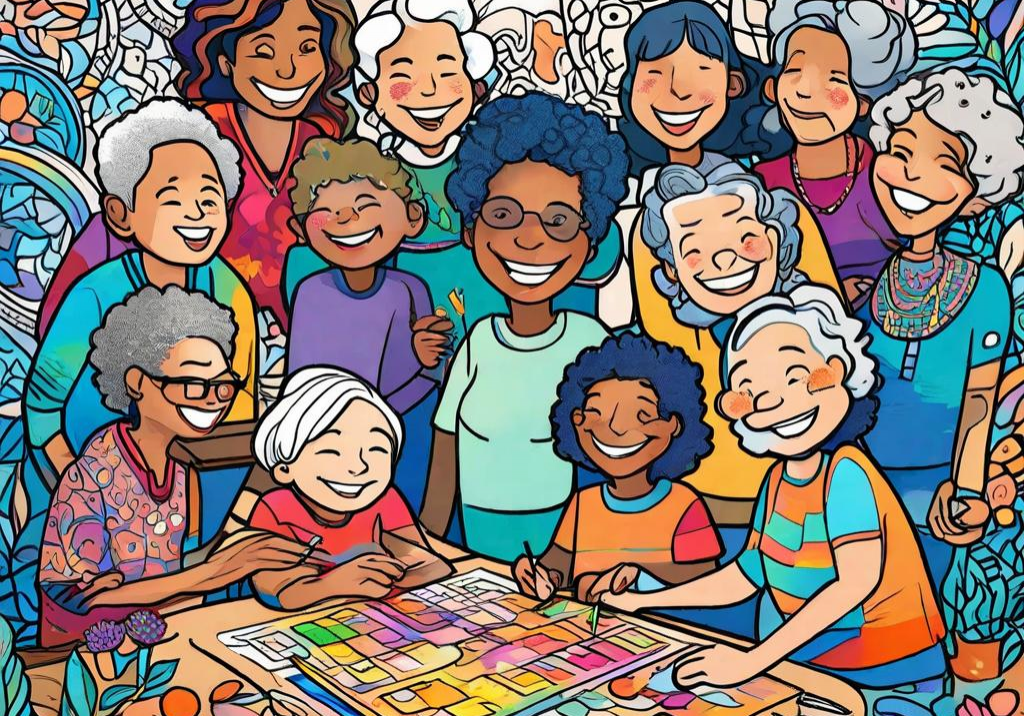
Empowering Tips for Incorporating Mindful Coloring into Daily Life
Establishing a sustainable mindful coloring practice
Combining mindful coloring with guided meditation and breathing exercises amplifies the anxiety-relieving effects. By incorporating breath awareness during coloring, individuals can synchronize their breathing with the color strokes, deepening relaxation. Guided meditations specifically tailored for coloring sessions can provide additional guidance and support, leading to a deeper sense of calm and stress relief.
- Setting realistic goals and expectations
Breath awareness involves bringing attention to the natural rhythm of one's breath. By focusing on the inhales and exhales while coloring, individuals can anchor themselves in the present moment and create a meditative state. This technique enhances relaxation and helps alleviate anxiety by reducing tension in the body.
- Overcoming barriers and staying motivated
Combining coloring with guided meditation involves listening to pre-recorded or live instructions that guide individuals through a relaxation process while coloring. These guided sessions provide prompts for visualization, body relaxation, and positive affirmations. This integration of mindfulness practices offers a holistic approach to anxiety reduction and serves as a powerful stress management tool.

Embrace Your Journey to Mental Well-being with Health Journal Coloring
As we conclude our in-depth exploration of understanding mental health, we invite you to take an active step towards nurturing your well-being. Our commitment to mental health goes beyond words, and we're excited to introduce a valuable companion on your journey – the Health Journal Coloring app.
Health Journal Coloring is not just an app; it's a mindful practice tailored to enhance your mental wellness. With a diverse range of coloring pages and mindfulness exercises, it provides a serene space for self-expression and relaxation. The app seamlessly integrates into your daily routine, offering a unique avenue to unwind and foster creativity.
Incorporate mindfulness into your life effortlessly. Track your progress, witness the impact of mindful coloring on your sleep, and take control of your mental health in an engaging way. The app is readily available for download on all major app stores.
Ready to experience the transformative power of mindful coloring? Click [here] to download Health Journal Coloring and embark on a journey to better sleep and overall well-being. Break the silence around mental health and color your way to a brighter, calmer tomorrow.
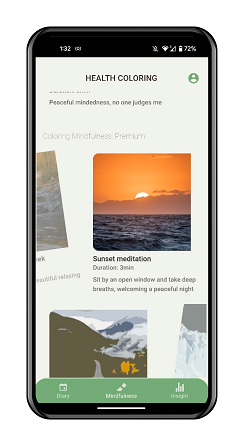
Summary
Combining mindful coloring with guided meditation and breathing exercises amplifies the anxiety-relieving effects. By incorporating breath awareness during coloring, individuals can synchronize their breathing with the color strokes, deepening relaxation. Guided meditations specifically tailored for coloring sessions can provide additional guidance and support, leading to a deeper sense of calm and stress relief.
FAQs
- Is mindful coloring suitable for everyone, regardless of artistic skill?
Mindful coloring is suitable for everyone, regardless of artistic skill. It is not about creating a masterpiece but rather about the process and the therapeutic benefits it offers. Even those with minimal artistic abilities can experience the calming effects of mindful coloring.
- Can mindful coloring replace professional therapy or medication for treating anxiety?
Mindful coloring can be a valuable complement to professional therapy and prescribed medication for treating anxiety. However, it should not replace medical advice or treatments. It is always important to consult with a healthcare professional for comprehensive treatment of anxiety disorders.
- How long does it take to experience the benefits of mindful coloring for anxiety relief?
The benefits of mindful coloring can vary from person to person. For some, the effects may be immediate, providing a sense of relief during the coloring session itself. However, to experience long-term benefits, regular and consistent practice is recommended. Over time, individuals may observe reduced anxiety symptoms, improved mood, and enhanced overall well-being.
- Are there specific coloring techniques or patterns more effective for anxiety reduction?
There isn't a one-size-fits-all answer to this question. Different individuals may find different coloring techniques or patterns more effective for anxiety reduction. It is important to explore different approaches and pay attention to what feels most soothing and calming for each individual.
- Can mindful coloring be used as a preventative measure against anxiety?
Yes, mindful coloring can be used as a preventative measure against anxiety. By incorporating regular mindful coloring practices into daily life, individuals can build emotional resilience, enhance self-awareness, and develop healthy coping mechanisms. Mindful coloring serves as a proactive tool to manage stress and anxiety, preventing them from escalating into more severe mental health conditions.